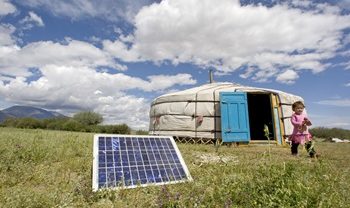Building on experience from conducting Technology Needs Assessments (TNAs) and Technology Action Plans (TAPs) in more than sixty countries UNEP DTU Partnership has just published a new guidebook to explain how a TNA/TAP process can be organized and implemented.
The TNA Step by Step – A guidebook for countries conducting a Technology Needs Assessment and Action Plan, summarizes the various steps in preparation of a TNA and TAP and will be the ‘go-to’ document for national TNA teams, including TNA coordinators and consultants.
It also points out the various materials that are available to guide and support project management and methodology further.
Download the TNA Step by Step here.
Addressing local needs
A TNA consists of a set of country-driven, participatory activities leading to the identification, selection and implementation of climate technologies in order to reduce greenhouse gas emissions and/or vulnerability to climate change.
As a country-driven process, the idea behind a TNA is that it is integrated with other similar ongoing processes in order to support national sustainable development and, not least, the implementation of countries’ Nationally Determined Contributions to the Paris Agreement (NDCs).
The TNA approach is participatory in nature and built around a bottom-up approach. Local consultants and a need and demand driven method ensures that the national priorities in the assessments will lead to overall development as well as climate change adaptation and mitigation.
Simultaneously the TNA process is designed to involve all relevant stakeholders on the assumption that any given technology is more likely to be understood, accepted, supported and implemented if all stakeholders are involved throughout the process.
Implementing the Paris Agreement and more
Assessing the need for technology is directly referenced in the Paris Agreement, but the TNAs are also a contribution to the general development of the participating countries, helping them take a step on the way to accessing technology to implement the 2030 Sustainable Development Goal agenda.
TNAs are also expected to be one of the instruments to implement Nationally Determined Contributions. This implies a significant scale-up and implementation of policies, measures, and technologies, as well as mobilization of domestic and international financial resources.


